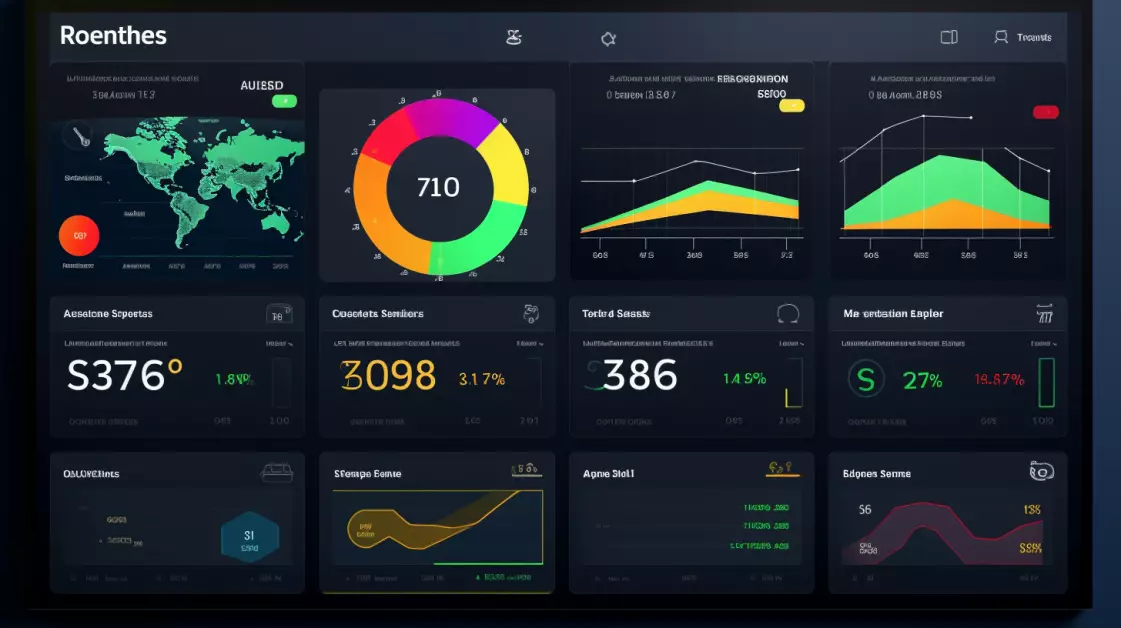From its inception, BlackRock's Aladdin has been a game changer in the world of asset management. Aladdin, which stands for Asset, Liability, Debt, and Derivative Investment Network, is a risk management system that provides comprehensive portfolio management, risk analytics, and operational tools for financial firms. Through its state-of-the-art technology, Aladdin has helped to revolutionize the asset management industry. But the industry is constantly evolving, and blockchain technology may provide the next breakthrough, enhancing transparency and efficiency even further.
Understanding Aladdin's Revolution
Aladdin operates on a single platform that provides a shared, consistent view of the most critical investment data, such as positions, exposures, and risk measures. It offers an integrated view of risk and compliance, covering virtually all types of assets globally.
Through its use of data and advanced analytics, Aladdin provides a real-time, holistic view of an entire portfolio's exposures, risk factors, and potential future scenarios. This has empowered asset managers to manage risk proactively and make more informed investment decisions.
Furthermore, the unified platform has dramatically streamlined operations, replacing a hodgepodge of standalone systems and manual processes. Aladdin's ability to reconcile data across different parts of a business has improved efficiency and accuracy, reducing operational risks and costs.

"The partnership between BlackRock and Coinbase is a massive deal."
The Potential of Blockchain in Asset Management
While Aladdin's capabilities are truly impressive, the asset management industry is on the brink of another technological revolution - blockchain technology.
Blockchain, the underlying technology of cryptocurrencies, is a decentralized, distributed ledger system that enables multiple parties to record and verify transactions with a high degree of transparency and security. It holds significant potential for enhancing asset management, particularly in terms of efficiency, transparency, and security.
Efficiency: Blockchain can automate and streamline processes, eliminating the need for intermediaries and reducing manual errors and delays. For example, the trading, clearing, and settlement of assets could be executed on a single, shared platform, greatly reducing the time and cost of these processes.
Transparency: The transparency of blockchain is another crucial advantage. Every transaction on a blockchain is recorded and can be viewed by all participants, making it difficult to manipulate or falsify data. This would enhance the transparency of portfolio holdings and transactions, thereby increasing trust and confidence among investors and regulators.
Security: Blockchain also offers superior security. The decentralized nature of blockchain, coupled with its use of cryptographic techniques, makes it highly resistant to hacking and fraud. This could significantly reduce the risk of data breaches, a growing concern in the digital age.

However, integrating blockchain into asset management is not without challenges. It would require significant changes to existing systems and processes, and the technology itself is still maturing. Regulatory issues, lack of standardization, and privacy concerns are also significant hurdles.
Yet, the potential benefits are substantial enough to warrant serious consideration. A blockchain-based platform could be the next step in the evolution of asset management, offering even greater transparency, efficiency, and security than current systems.
Imagine a system like Aladdin, but enhanced with blockchain technology. It would offer real-time, transparent views of portfolio holdings and transactions, drastically streamlined operations, and unparalleled security.
In conclusion, as the asset management industry continues to evolve, embracing emerging technologies like blockchain could be instrumental in driving future success. While Aladdin has revolutionized asset management, the integration of blockchain technology may be the next quantum leap forward, bringing unprecedented levels of transparency, efficiency, and security to the sector.
Note: Please ensure to consult legal and financial experts to ensure compliance with applicable laws and regulations before launching any investment-related DAO.



